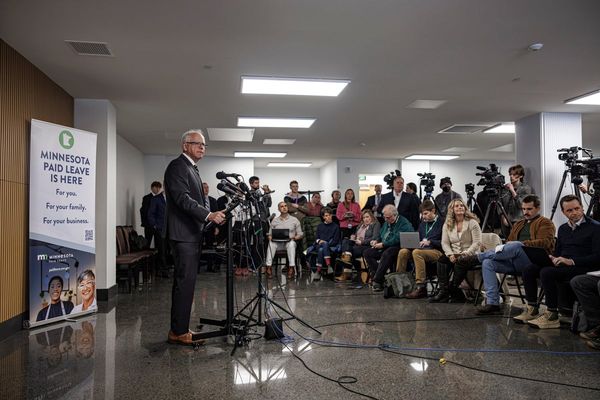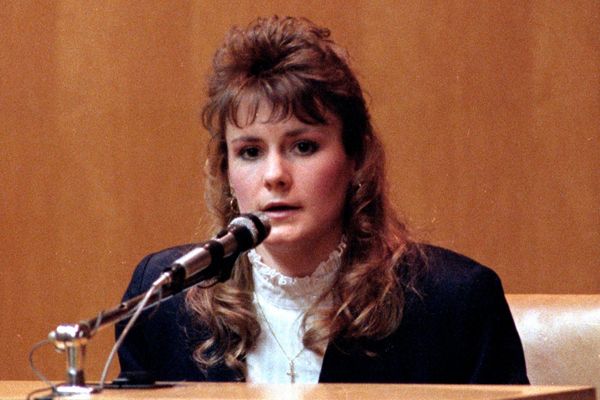HARTFORD, Conn. — When Elizabeth Carlson’s parents agreed to a plea agreement to send their daughter’s killer to prison for 42 years, they thought it was iron-clad.
Recently, they learned that Jonathan Carney wrote a letter to the Board of Paroles and Pardons to request a full hearing to consider a commutation of his sentence — a request that, if granted, might lead to him being let out of prison early.
The current policy states that the board may use its sole discretion to commute any sentence of any individual who is currently incarcerated after being convicted and sentenced for any crime in Connecticut.
According to the board’s policy, a person has to be at least 10 years into their sentence to be eligible for commutation and face at least two more years behind bars.
“That means that these are people sentenced to at least 15 years. These aren’t petty criminals,” said Bruce Carlson, Elizabeth’s father.
The Carlsons responded by writing letters of their own and getting more than 1,000 other people to write letters of opposition, too.
It’s been more than 20 years since Carlson’s smart, blond-haired daughter was shot to death in the home they still live in, a green house at the curve of a peaceful cul-de-sac in Newington that they share with their two poodles.
She was shot multiple times by Carney, a veterinarian who was once welcomed into the Carlson family as their eldest daughter’s seemingly charming, intelligent boyfriend.
The Carlsons liked Carney at first, they said, but after a breakup spurred by a glimpse of Carney’s violent side, the family saw growing signs of stalking and harassment. Still, they never expected the brutality of what was to come on May 22, 2002.
That night, Elizabeth and her sister Leslie came home and spent time on the lower level of their parent’s home heading upstairs where, unbeknownst to them, Carney was lying in wait with a handgun.
He shot Elizabeth multiple times, killing her. Leslie ran for her life, reaching a neighbor and calling for help, while Carney ran down the street. He was eventually found by police not far from their house.
The shooting upended their lives and family, causing decades of trauma and fear. A fear that was slightly quelled by Carney’s conviction and 42-year sentence. But that fear returned to the forefront of their lives last week as they waited to hear the board’s vote on Carney’s request.
The idea that Carney might walk free in their lifetime made Audrey and Bruce Carlson feel “scared to death,” the couple said Friday. It sent their family “into a tailspin.”
Audrey Carlson sent a text to their attorneys, law enforcement officers and victims’ advocates that had worked with them on their daughter’s case. “Help. SOS,” it read. “Bring the troops in.”
For the few days they had until the board would vote, they worked around the clock.
They penned their own emotional letters. They tapped into their surviving daughter Leslie Carlson Schlatchter’s social media following using the neurosurgery influencer’s nearly 25,000 Instagram followers to help spread the word all across the globe.
They called on everyone they knew, asking them to voice their concerns and implore the board to deny Carney’s request.
Within a week, more than 1,000 letters poured in.
Their efforts seemed to have made an impact. On Jan. 24, the board had an Inmate Commutation Hearing Pre-Screen, in which they ruled on whether or not they would grant full hearings to inmates at which they would consider commutations, or shortenings, of their sentences.
The board considered 38 applications that morning. They denied Carney’s, along with 29 others.
Before the vote, the board heard objections that mentioned the volume of opposition letters received and the seriousness of the crimes.
Carney’s request for a full hearing was denied due to the seriousness of the crime and because the crime was too recent.
In total, the board denied 76% of applicants last week, keeping in line with their average over the last several months.
Last summer, the Carlsons received the first word of a possible commutation hearing for Carney. Until then, it had been their understanding that when they agreed to a plea deal — a decision they described as “gut-wrenching” — there was no chance of early release. A plea agreement, said Audrey Carlson, “should be, should always be, nothing other than iron-clad,”
“That’s how it was sold to us,” Bruce Carlson said.
The idea that it might not be has shaken their trust in the legal system.
“We’re serving a life sentence without our daughter and these convicts have more rights than we do,” said Audrey. “It’s unjust and it’s outrageous.”
The Carlsons hope that their public outcry will help members of the legislature and the public understand the board’s policy on commutations and remind them of Carney’s crime.
In the Carlson home, photos of Elizabeth line the walls. They are daily reminders of her bright smile and love of the stage. Elizabeth, her parents said, was a natural performer.
“She came alive on stage,” her mother said, pointing to a photo in an ornate gold frame that featured a brunette Elizabeth, who dyed her hair for a role in West Side Story.
While her sister excelled in athletics, Elizabeth loved theater and dance. When it came time to apply for colleges, she sat at the same dining table where her parents sat last week and lamented that there weren’t enough scholarships available for students who favored the performing arts over athletics.
“One day I’ll be successful and find a way for kids like me to get a full ride,” her parents recalled her saying.
She vowed that when she grew older and became successful she would launch scholarship programs for students like her. She never got to, but her parents have fulfilled her dream.
The Carlsons launched the Elizabeth Anne Carlson Performing Arts Foundation, through which they have supported more than 25 students with $20,000 scholarships that have helped them go on to have careers as Rockettes, cast members in Hamilton on Broadway and as Hollywood screenwriters.
Now, they’re asking people to donate $42 to her scholarship fund to support students in the performing arts and to support Carney’s agreed-to 42 years behind bars, a sentence they desperately hope does not change.
“We don’t have Elizabeth,” said Audrey Carlson. “However, our family has grown with all these other kids we’ve given scholarships to.”
———
(Hartford Courant senior reporter Edmund Mahony contributed to this report.)
———







